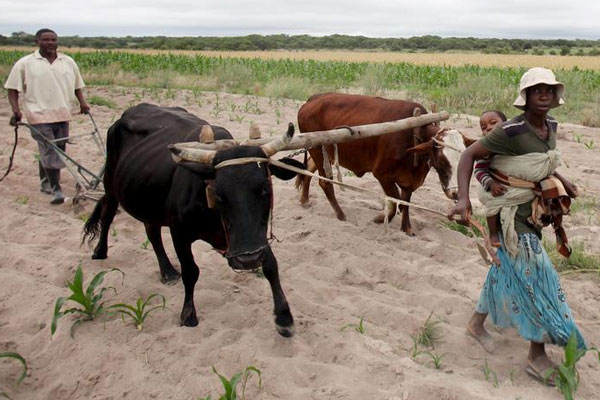
Icome from Matopo. By that I mean my rural home is an area called Zamadube in Kezi, Matopo district. This is where my father was born and raised. This is where my grandparents built their home. My grandfather is late, but my grandmother is still alive and runs that home better than any man ever could.
Environment By Thandekile Moyo

Our home is in an area that one would call extremely rural. There is no running water. No electricity and the nearest store/shop is kilometres away. I have actually never been to the shops back home. Whenever we need supplies, someone has to drive to Maphisa, a growth point that is 20km away, but more than two hours’ drive, because of the state of the road. The other option is to rope donkeys on a scotchcart and go and buy at the “local” shop which usually doesn’t have most of the things we need.
The school nearest to our home is St Anna Primary School, and it is probably more than 10km away. This is where my father and his siblings went to school. This is where my cousins who grew up back home went to school.
It is said some children rarely made it to school. Because it was so far away, they preferred to spend their days playing in the bush instead of walking the long distance to school. Unfortunately (or fortunately) for my cousins, aunts and uncles, my grandfather was a teacher at the school so they couldn’t afford to bunk.
The nearest church is also as far as the school. My aged grandmother has to walk that distance whenever she feels the need to go and fellowship with others.
Rural life is tough. I could never survive there under the current conditions. I cannot imagine having to go and fetch firewood for cooking. I just can’t fathom having to fetch bathing and drinking water from the community borehole every day. Whenever I have to cook, I sniff throughout the process and my eyes tear and swell from the smoke. I make it a point to spend as few days as possible in the rural areas.
This has me wondering about the people who live in the rural areas. People who have no option, but to live there. Is it fair that we let our grandparents and cousins toil under such harsh conditions while we live affluent and “easy” lives in urban areas? Is it even humane?
- Chamisa under fire over US$120K donation
- Mavhunga puts DeMbare into Chibuku quarterfinals
- Pension funds bet on Cabora Bassa oilfields
- Councils defy govt fire tender directive
Keep Reading
Most of us romanticise rural life and talk about how nice it is to take a few days to go there and unwind. But we only do that because we go as and when we feel like it and never have to stay for long. Do we ever stop to think of the perpetual rural dwellers? Those who have no option, but to survive and endure under those conditions.
Because most of our populations are in the rural areas, rural development should be a priority. We need to go out of our way to make rural areas more habitable. Most of us were sent to school by rural-based parents and guardians. I am sure they sacrificed their hardearned money and their livestock which they sold to raise school fees; just so we have better lives. Most of us took that education and used it to make a living in urban areas. We used the education to get better lives for ourselves and forgot all about our folks in the rural areas.
How impossible is it to electrify our rural areas? How impossible is it to introduce piped water? Is it impossible for us to construct proper bathrooms with showers and flush toilets in the rural areas? Don’t our relatives also deserve good roads and better transport networks?
We have the collective obligation to develop our countries. National development is the collective responsibility of everyone living in a country. Rural development is the key to our national development, fundamental not only because the majority of our nationals are rural-based, but because our urban areas are “full”.
Urban areas are human settlements with high population density and high settlement/building density. Whatever is not urban is considered rural. Rural areas, on the other hand, have low population and low settlement densities. They are located outside urban areas.
Zimbabwe’s urban areas are overpopulated. This means that the number of people living in our urban areas exceeds the carrying capacity of those environments. Interesting though, is the fact that, overpopulated as urban areas may be, the majority of Zimbabweans are found in the rural areas. Despite that, our rural areas are underpopulated.
What this means is that there is a surplus of people in the urban areas where there’s a deficit of resources to sustain those people. In the rural areas there is a surplus of resources and a “deficit” of people. This is because those people with the potential and capacity to develop rural areas are lured by the development already found in urban areas and migrate as soon as they can to urban areas.
For these reasons and also for the sake of improving living standards of our people there, rural development is something we need to prioritise. Once we develop our rural areas, less people will be pushed to migrate to the urban areas and some will opt to leave urban areas for better lives back home.
Overpopulated urban areas are riddled with disease, crime and other social ills. Let’s build schools, hospitals, shopping and entertainment centres in our rural areas and we’ll see most of the challenges we are battling coming to an end.











